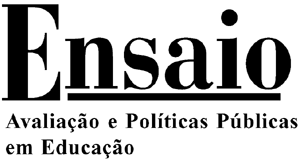Abstract
One of the principal aspects to develop affirmative action in Brazil comprises how to define target population, which includes uses and perceptions of ethnic/racial/color categories. The present paper has the main objective of bringing the analysis about IBGE’s2 race/color classifications contribute to the design of affirmative action in Brazil using categories historically constructed with the endorsement of official statistics. The color issues in the Brazilian Census and the experiences, including the racial designation as an open response, has been studied since 1872, and it is noted that there are two dimensions to be observed in the affirmative action debate: a structural and other cultural involving race/color classifications in Brazil. The statistics are fundamental to build the best evidence in shaping public policy. On the other hand, we must recognize ethnic and racial identities as cultural phenomena that are susceptible to change, which drives us to continue the discussion, trying to capture the meaning of these transformations. The affirmative action debate may not disqualify any of these approaches to knowledge about race relations in Brazil.
Race/color Classification; Brazilian Census; College Education; Affirmative Action

 Source:
Source:  Source:
Source:  Source:
Source:  Source:
Source: